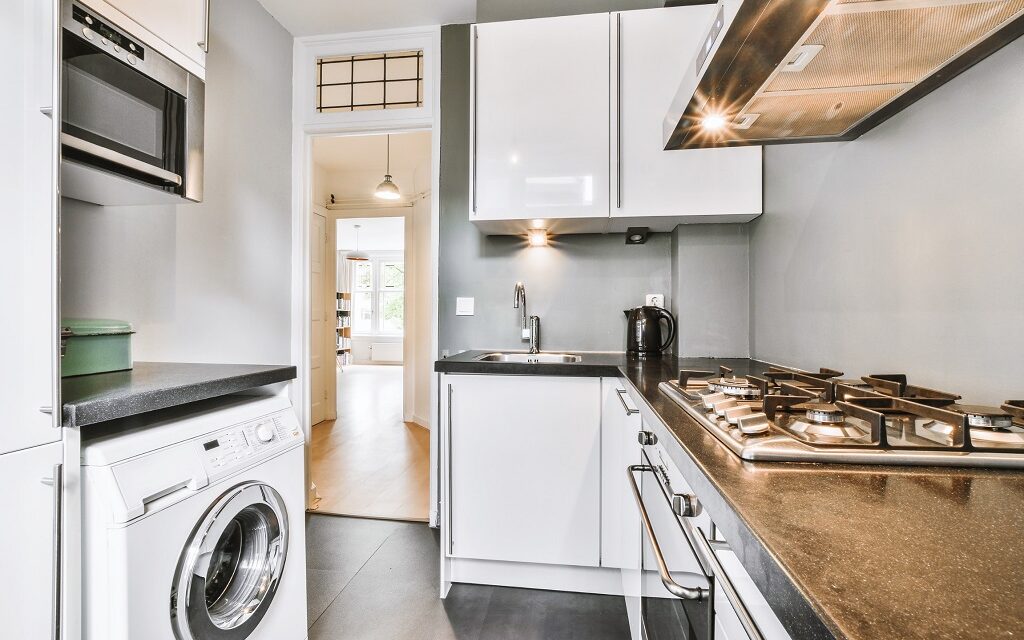Are you living in an older house or constantly facing electrical problems? It might be time to consider an upgrade to your electrical panel (AKA residential load center). Why? Your electrical panel is like the powerhouse behind the scenes, providing vital energy that powers your outlets, devices, and beloved appliances.
When it comes to your home’s electrical service, hiring a skilled, licensed electrician to upgrade your electric panel is a smart decision. Not only does it enhance your home’s value and ensure safety, but it also boosts your comfort and overall convenience. An electrical panel upgrade will not only give you more power and better service than your old panel, but it will give you peace of mind.
This article explores five key reasons why upgrading your electrical panel will benefit you and your home.
5 Reasons You May Need to Upgrade Your Electrical Panel
- Safety: Prevent Fire Hazards and Shocks
- Efficiency: Lower Your Energy Bills
- Reliability: Prevent Power Outages
- Capacity: Support More Appliances, Devices & Usage
- Value: Make Your Home More Desirable
Also see:
1. Safety: Prevent Fire Hazards and Shocks
Electrical safety is a vital aspect of maintaining a safe and comfortable home. Electricity powers a vast majority of the appliances and devices we use on a daily basis, but it also poses serious hazards if not handled properly.
If your electrical panel is old, outdated, damaged, or too small for your need, it’s crucial to recognize the potential risks it poses, including:
- Electrical Fires
- Shocks
- Power Outages
Electrical panels become a fire hazard when they are unable to trip breakers reliably to stop the surge of too much electrical voltage going to electrical wires within your home. Electrical panels are more likely to fail when they’re overloaded.
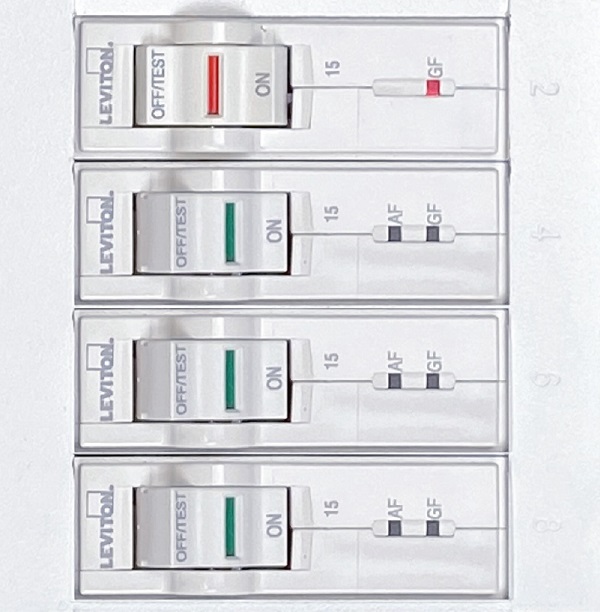
Image courtesy of Leviton
Signs that your electrical panel may be a fire risk include:
- Hot-to-the-touch spots
- Burning spots or singe marks
- Burning smells
These hazards can lead to property damage, harm to individuals, and even tragic loss of life. To mitigate these dangers, it’s essential to consider upgrading your electrical panel and circuit breaker system. By doing so, you can effectively address the safety concerns and ensure that your home meets the latest safety standards, minimizing the likelihood of such incidents occurring in the future.
The importance of electrical safety could not be more emphasized than by the following statistics from the National Fire Protection Association:
- Electrical fires accounted for 13% of all home structural fires from 2015 through 2019
- Home electrical fires caused an average of 390 deaths and 1,330 injuries each year from 2015 through 2019
- An estimated $1.5 billion in direct property damage occurred annually due to electrical fires from 2015 though 2019
Panel replacement can reduce the likelihood of such tragedies and protect your family and home.
Electrical panel brands that have a reputation for being fire hazards are:
- Federal Pacific Electric (FPE) Panels (ceased production of panels in the 1980’s)
- Magnetrip (manufactured by Zinsco)
- Pushmatic (panels made between 1950 and 1980)
- Sylvania (panels using the Zinsco design)
- Zinsco Panels (discontinued in 2005)
2. Efficiency: Lower Your Energy Bills
One of the main drawbacks of outdated electrical panels is that they are inefficient and wasteful. They consume excess electricity, leading to elevated energy costs and inefficient use of resources. Additionally, they may not be compatible with modern appliances and devices that have higher safety and performance standards, and may require more power.
Upgrading your electrical panel can improve your home’s electrical efficiency in several ways.
First, a new panel can ensure that it can handle your household’s current and future electrical demands.
Second, a new panel can reduce the risk of power surges, outages, and fires damaging your appliances and electronics.
Third, a new panel can allow you to install energy-efficient features such as smart thermostats, LED lighting, and solar panels that lower your energy consumption and save you money.
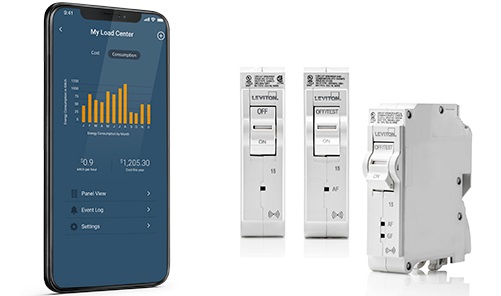
Image courtesy of Leviton
The potential cost savings associated with energy-efficient upgrades are significant and long-term. According to the U.S. Department of Energy, upgrading your electrical panel can save you up to 30% on your annual energy costs.
Moreover, you can also benefit from tax credits, rebates, and incentives offered by various federal, state, and local programs that encourage homeowners to make energy-efficient improvements. For example, the Residential Energy Efficiency Tax Credit can provide a maximum credit amount of $3,200 of certain qualified energy-efficient products installed in your home. The individual credit amount of qualifying products equates to 30% of approved expenses.
To illustrate the impact of upgrading your electrical panel on your energy savings, consider the following example case studies.
In 2019, a homeowner in California replaced his old 100-amp panel with a new 200-amp and installed a solar system that generated enough electricity to power his entire home. He reported that his monthly energy bill dropped from $250 to $10 and that he received a $3,000 tax credit for his solar installation.
In 2020, a homeowner in Texas upgraded her outdated 150-amp panel with a new 300-amp and added several smart devices, such as a Nest thermostat, Philips Hue lights, and Amazon Echo speakers. She reported that her annual energy consumption decreased by 40% and that she saved $1,200 on her energy bills and $500 on her taxes.
3. Reliability: Prevent Power Outages
Modern households increasingly rely on various forms of energy to power their daily activities, from lighting and heating to cooking and entertainment. According to a review by Sorrell (2015), energy demand is strongly correlated with income. As consumers become wealthier, they tend to utilize more energy-intensive goods and services, such as large electrical appliances, electronic devices, and electric vehicles.
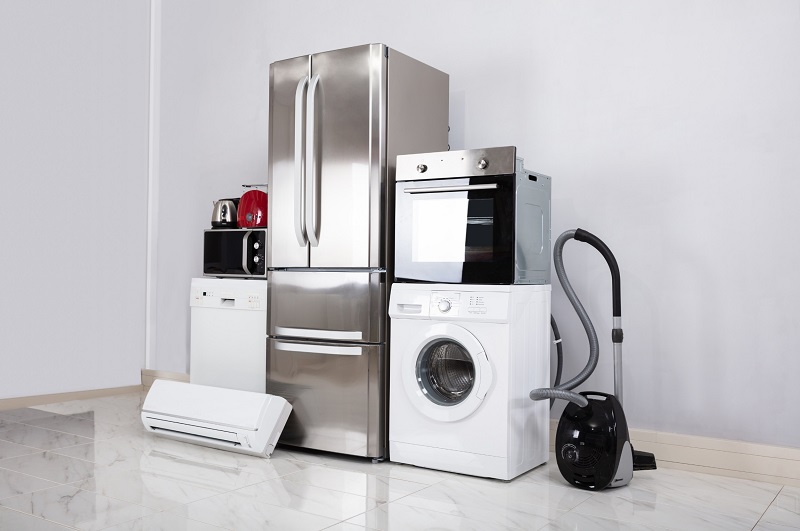
As energy demands grow, existing panels may be unable to handle the increased electrical loads safely and efficiently. Old panels are not up-to-date or cannot handle as much power compared to new standards.
Outdated fuse boxes can present various risks, including:
- Overheating
- Tripping
- Short-Circuiting
- Causing Electrical Fires
Additionally, they can contribute to increased energy bills, as inefficient wiring or insulation may lead to electricity wastage.
Identifying signs that indicate your panel requires a service upgrade is vital, especially when it comes to rural electrification. Upgrading your panel to an appropriate amp capacity not only helps alleviate the risks of overheating and electrical malfunctions but also promotes efficient energy usage. By taking this step, you will significantly decrease the likelihood of electrical hazards, ensuring a safer and more reliable electrical system for rural electrification projects.
Benefits of Upgrading to Accommodate Increased Energy Needs
Opting for an electrical panel replacement to meet increased energy demands brings numerous advantages for households and the environment. Not only does it enhance the safety and reliability of the electrical system, but it also minimizes the risk of accidents and power outages.
However, it’s important to consider the average cost to upgrade an electrical panel and weigh it against the benefits gained. By investing in this upgrade, you can enjoy a more secure and dependable electrical system, promoting peace of mind and environmental sustainability.
New electrical panels can also enhance the efficiency and performance of appliances and devices, saving energy and money in the long run. Additionally, new breaker boxes can enable households to adopt cleaner and more sustainable forms of energy, like solar or wind power.
Some examples of common appliances or technologies that require more power than older ones are:
- Air Conditioners: Modern air conditioners use more electricity than older models, especially during peak hours in hot seasons. They also need a higher voltage and amperage to operate properly.
- Electric Vehicles: Electric vehicles are gaining popularity as a substitute for gas-powered vehicles. Still, they also require more electricity to charge their batteries. They may need a dedicated circuit or outlet with a higher capacity to avoid overloading the panel.
- Smart Devices: Smart devices, such as TVs, laptops, phones, speakers and cameras, are increasingly connected to the Internet and offer various features and functions that require more electricity. They may also need more outlets and adapters.
4. Capacity: Support More Appliances, Devices & Usage
Suppose you have plans to renovate your home or incorporate new features. In that case, it’s important to consider the electrical capacity of your current panel. Upgrading your electrical system can provide the necessary support to power your new appliances, fixtures, or additional rooms.
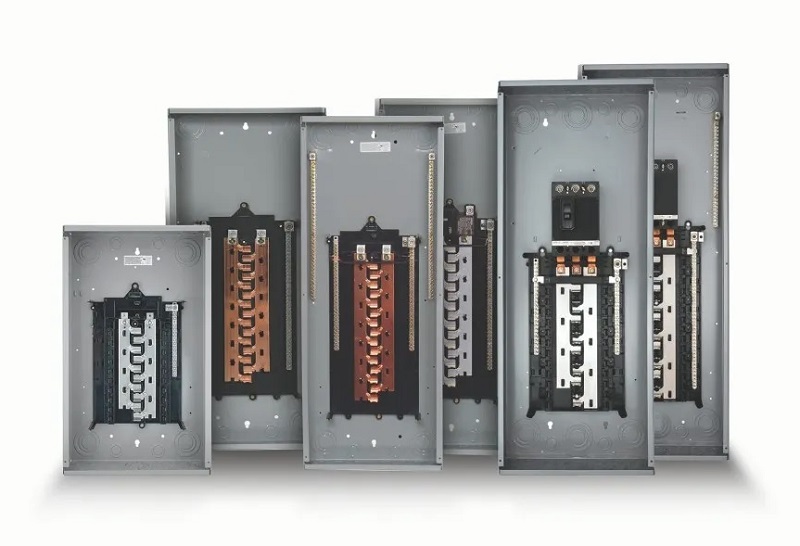
Image courtesy of Siemens
Doing so can prevent overloading, overheating, or short-circuiting, all of which can pose fire hazards or damage equipment. Ensuring that your electrical system aligns with your evolving needs is essential for the safety and functionality of your home during renovations and other additions.
Upgrading your electrical panel before undertaking major home projects can save you time, money, and hassle in the long run. You can avoid redoing the wiring or installing additional circuits later. A dependable and secure electrical system in your home provides peace of mind.
Some common renovations and additions that may require electrical upgrades include:
- Installing a hot tub, pool, sauna, or spa
- Adding a home office, gym, theater, or studio
- Remodeling your kitchen or bathroom
- Expanding your living space with a basement, attic, or garage conversion
- Adding solar panels or electric vehicle charging stations
5. Value: Make Your Home More Desirable
An electrical panel upgrade will not only enhance your home’s safety, efficiency, and functionality but it will also increase your home’s value and desirability. Recognizing the signs you need an electrical panel upgrade is crucial to addressing potential issues and reaping the benefits.
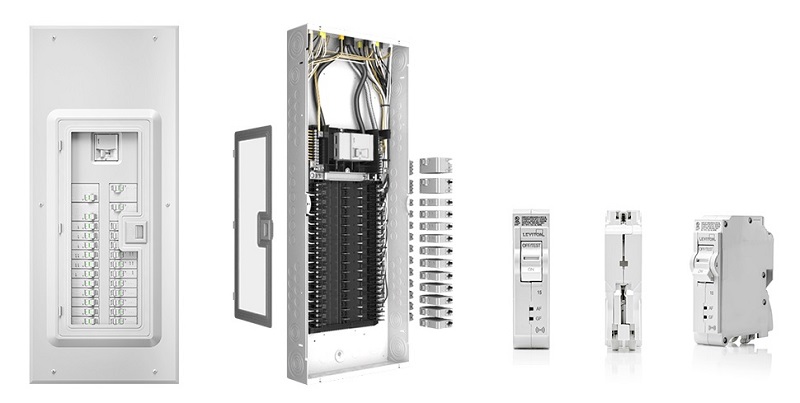
Image courtesy of Leviton
Investing in the upgrade can ensure your home can handle increased electrical loads, effectively preventing problems like flickering lights, tripped breakers, or power surges. While considering the cost of replacing your breaker panel, remember that the long-term advantages of safety and improved functionality make it a valuable investment for your property.
A new panel can impress potential buyers who inspect your home’s electrical work. It can demonstrate that you have taken good care of your home and upgraded its quality for a contemporary lifestyle. An update will also spare buyers the trouble and expense of upgrading the main panel after buying the home.
Conversely, prospective buyers may be deterred by outdated or faulty electrical panels that require repairs or replacements, potentially putting your whole house in doubt that it is a sound property.
Furthermore, an electrical panel upgrade can increase the marketability and appeal of your home by making it more compatible with modern appliances and devices. An electric panel upgrade can support higher electrical demands and accommodate smart home features such as security, thermostats, lighting, and entertainment systems. A new system can also allow you to add more outlets, switches, or circuits to your home as needed.
These features can enhance your home’s comfort, convenience, and functionality and make it stand out from other properties on the market.
Leading Electrical Panel Brands
Conclusion
Breaker panel replacement is important for five reasons:
- Safety
- Efficiency
- Reliability
- Capacity
- Value
In other words, with a home’s electrical system upgrades, you can:
- Prevent fire hazards
- Lower your energy bills
- Avoid power outages
- Support more appliances and devices, and
- Increase your home’s resale value
Upgrading electrical panels is absolutely a smart investment for homeowners who desire a modern, comfortable, and safe lifestyle.
Recommended Electrical & Home Maintenance Articles
- Why You Need a Fix-It Game Plan for Your Newly Purchased Home
- 20 Best “How To” YouTube Videos for Home Maintenance
- Home Inspection Technologies to Alleviate Your Purchase Anxiety
- What to Consider When Purchasing an Older or Historic Home
- 5 Things to Look for in the Fine Print of a Home Warranty Plan
- 20 Best “How-To” YouTube Videos for Home Maintenance
| Purgula is reader-supported. When you click on links to other sites from our website, we may earn affiliate commissions, at no cost to you. If you find our content to be helpful, this is an easy way for you to support our mission. Thanks! Learn more. |

